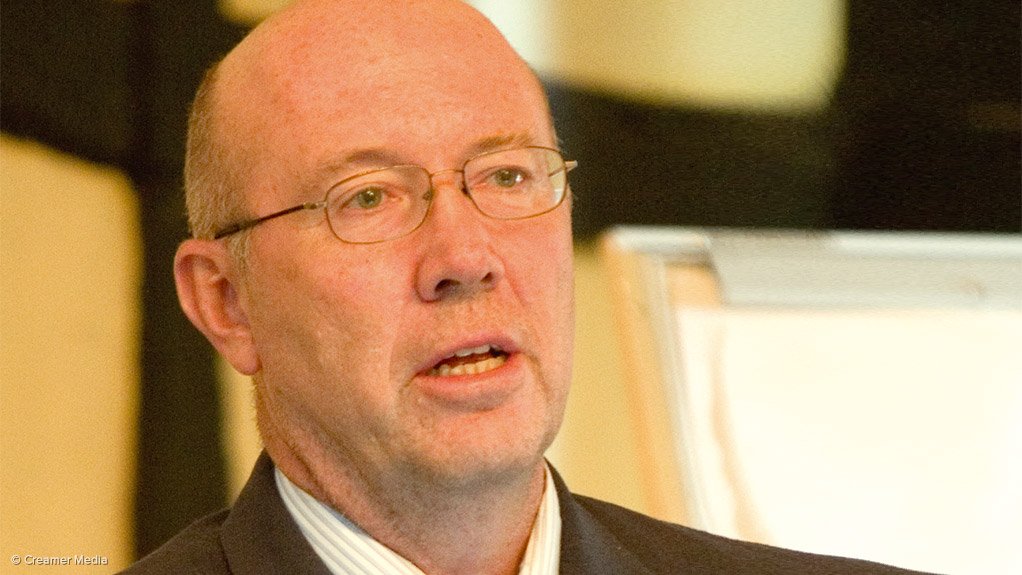Although South Africa could procure more energy from other African countries to help plug its energy gap, nuclear energy would be a more secure option in the long run, says former South African Nuclear Energy Corporation CEO Dr Rob Adam.
He told attendees at a South African National Energy Association meeting, in Cape Town, that offshore gas from Mozambique, coal-fired energy from the proposed 1 200 MW Mmamabula power station and integrated coal mine project, in Botswana, and hydropower from the Grand Inga project, in the Democratic Republic of Congo (DRC), could contribute to South Africa’s energy supply.
However, Adam warned the country not to rely too heavily on an outside source of energy for its domestic needs, as that could be risky.
“Classically, the advice you’d get from your basic energy adviser is that you shouldn’t get more than your reserve margins from outside your country. You could ultimately have the equivalent of a financial meltdown, because everyone thinks they can get energy from everyone else,” he added.
Further, he said that, while Mozambican gas reserves were certainly an option for South Africa, there was also a downside.
“Sasol was a major player but it has been overtaken by Anadarko and Eni. Pressure will be put on governments to trade equity for operational contributions. The conclusion is that these resources will not be controlled by Africa,” he noted.
Conflict, which had returned to gas-rich Mozambique after 21 years, posed another potential risk.
Meanwhile, while South Africa’s own shale gas resources could also potentially help to plug the country’s energy gap, Adam argued that this would require economies of scale to work.
“A quarter of a million wells have been drilled in the US. But in South Africa, we’re in a danger zone of whether it would be economically practical or not.”
BENEFITS OF NUCLEAR
Adam said South Africa’s proposed new nuclear power stations would produce electricity more profitably than coal-fired power generation, if funded with equity or low-cost capital.
Adam, who is director designate of the Square Kilometre Array, stated that the high cost of building nuclear power stations would be worth it in the long run.
“Nuclear is very expensive to build but once you’ve paid it off, the plant lasts 60 years versus 25 to 50 years for coal. Koeberg is Eskom’s cash cow because it’s paid off and costs very little to run.”
He added that nuclear power stations also had lower fuel costs than coal-fired stations.
Adam said the procurement of a new fleet of nuclear reactors was going to demand certainty over who operated them, financial guarantees from construction companies and a strong element of local procurement.
To bid for new build contracts, companies would need to put financial guarantees in place. Adam said parent company guarantees were typically 30% of the project value, if it was mainly civil construction, and up to 100% for electromechanical work.
South Africa was considering a localisation target of 40% to 50% for its new nuclear power station fleet.
“The big snag is that the market capitalisation of the entire South African construction industry is currently less than R40-billion. The industry is in big trouble and is currently fighting for its life.
“Government will set a high bar for localisation. But will it incentivise by reducing the bond requirements for local companies? Unless this happens, the boards of construction companies will not be in a position to approve any bids,” Adam asked.
Nevertheless, he believed nuclear would be an excellent energy supply option for the Western Cape and the Eastern Cape, which were far from coal-fired power stations, while suggesting that gas should be used as a peaking technology in the country.
EMAIL THIS ARTICLE SAVE THIS ARTICLE FEEDBACK
To subscribe email subscriptions@creamermedia.co.za or click here
To advertise email advertising@creamermedia.co.za or click here











